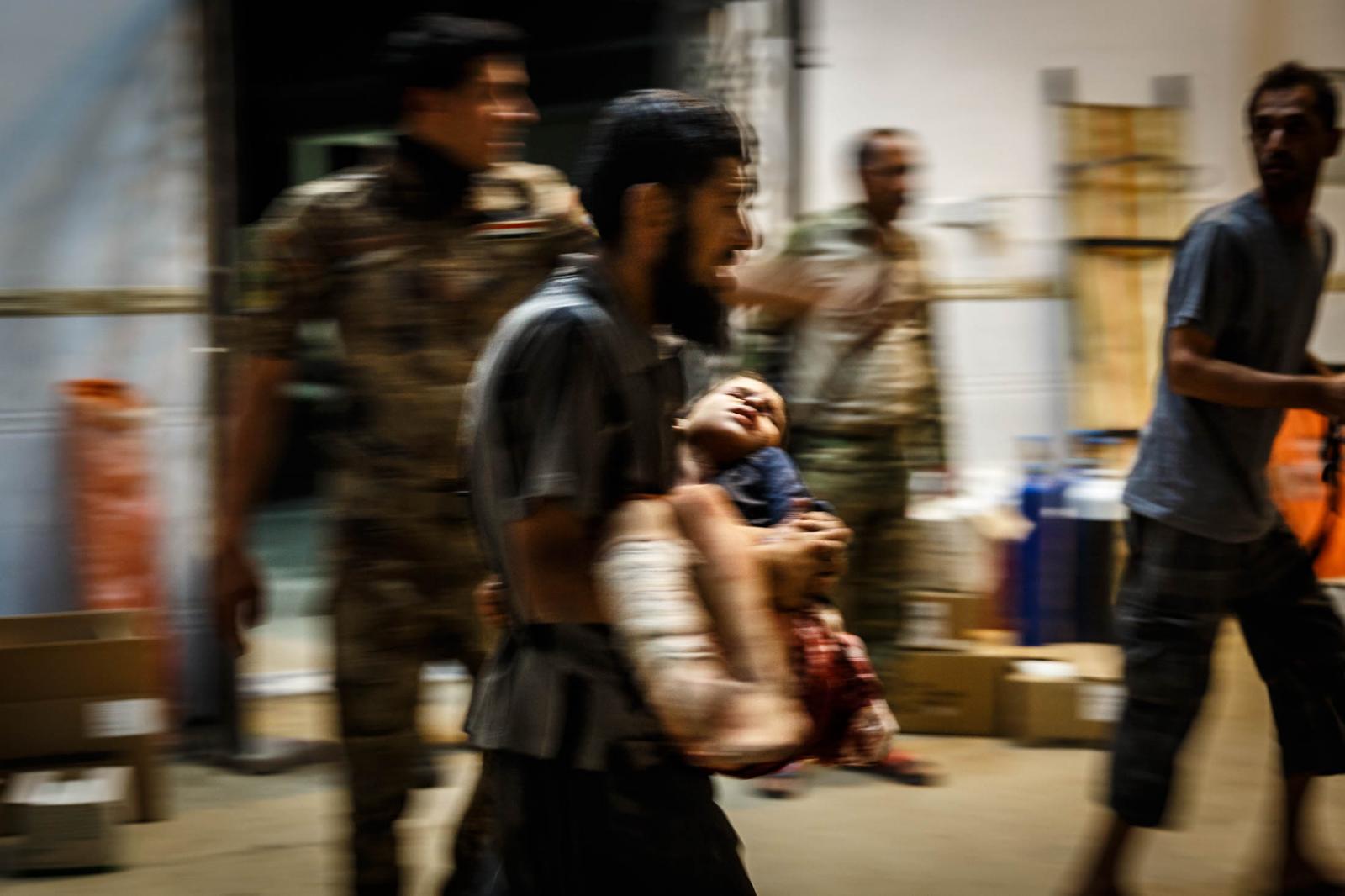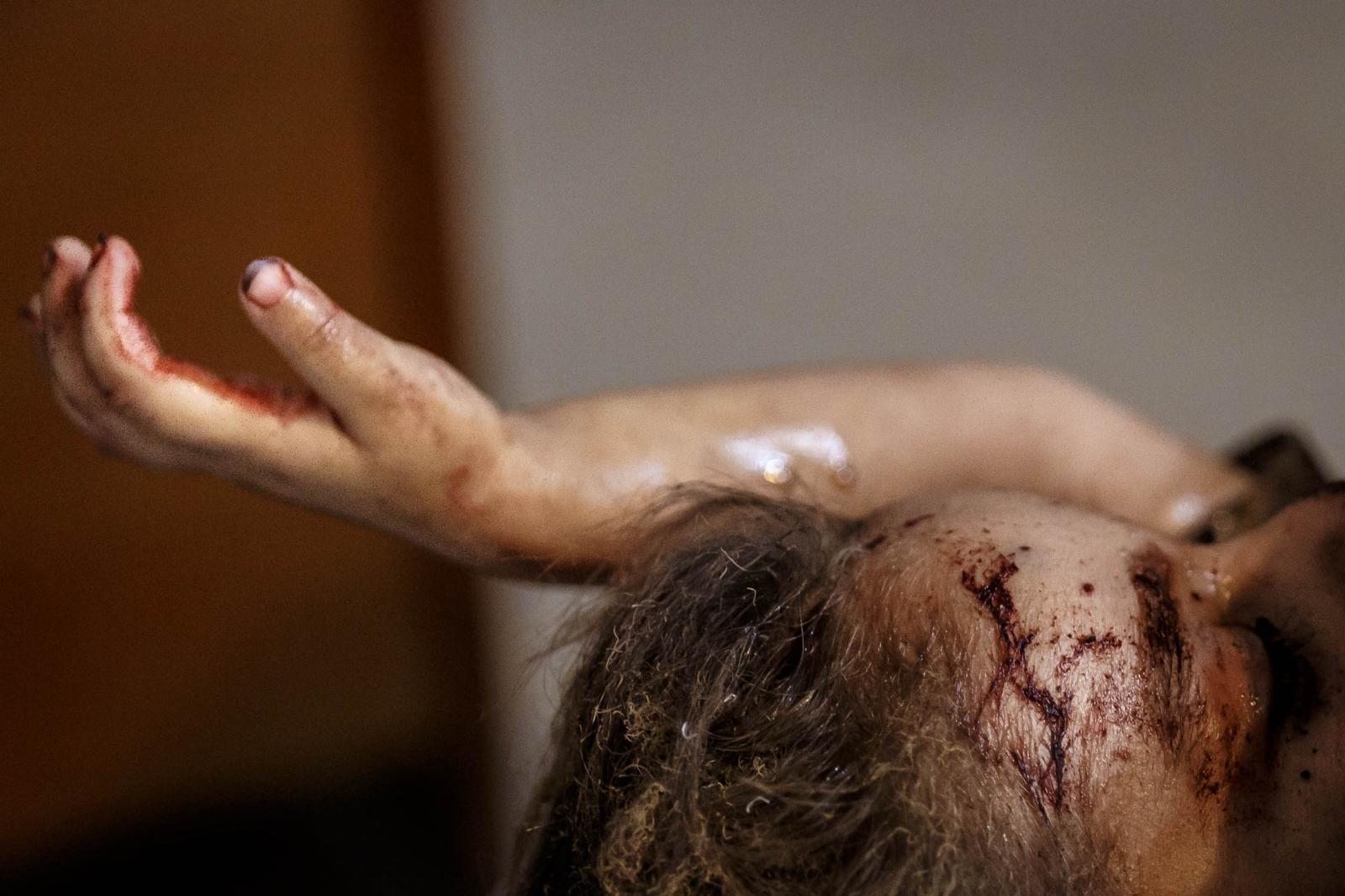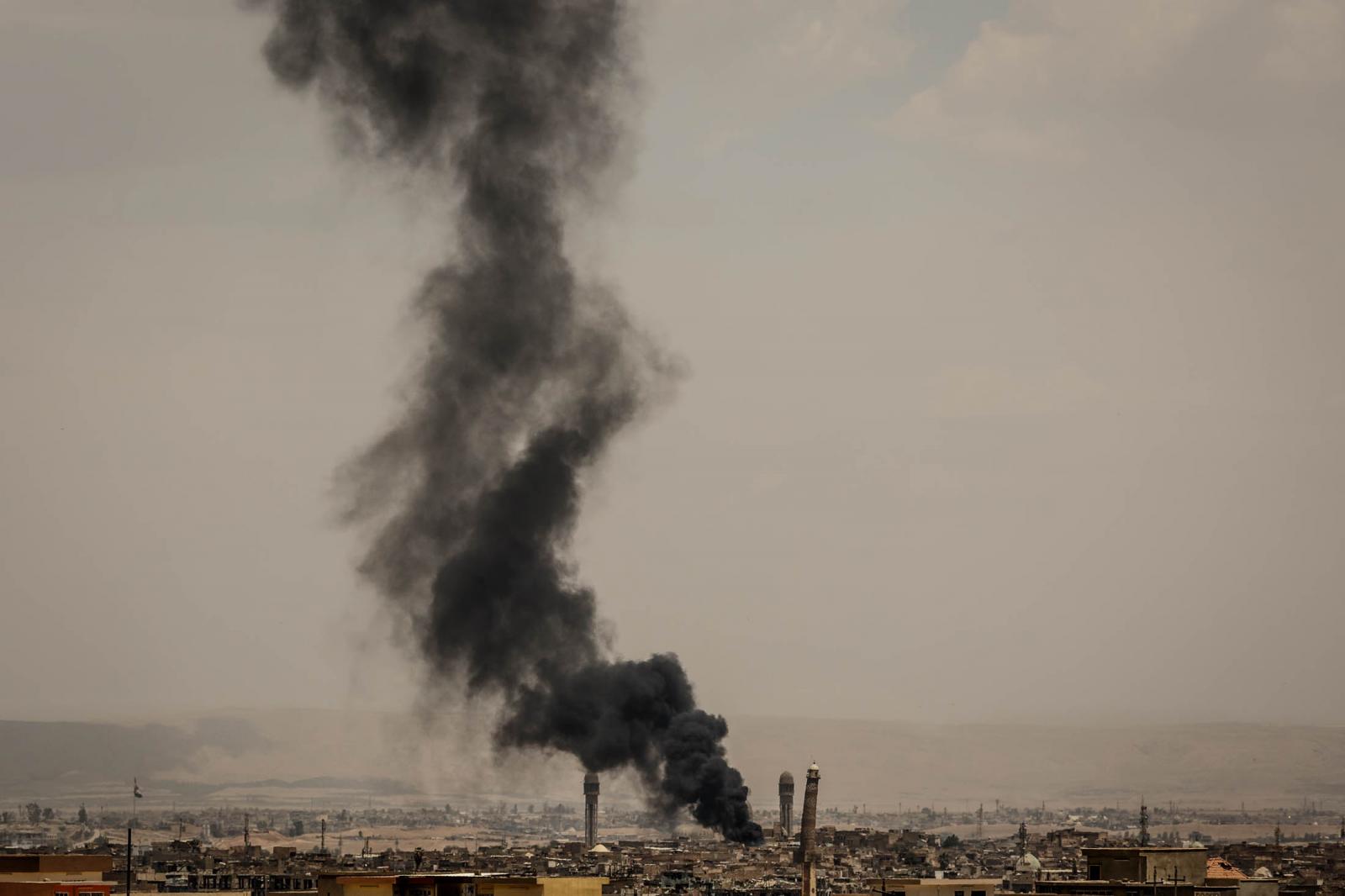Public Story
Innocence Lost
The civilians—men, women and children—regularly make the ultimate sacrifice.
At best, those who perish become a statistic. In the battle to liberate Mosul, Iraq the record keeping was so poor many did not even become that.
In May and June of 2017 I was in West Mosul with a team of medics, a mix of Iraqi and Western doctors and nurses. The medical team was embedded with the Iraqi Special Operation Forces (ISOF) and though their focus was meant to be treating military casualties those who came through the gate were primarily dead or injured civilians.
While in Mosul I spent days and nights with the team, slept in their makeshift clinic and photographed their work. Most nights we were awakened by the sound of airstrikes in the Old City—the historical center of Mosul—less than 2km away. We‘d sit on the roof and watch orange balls of fires light the sky. It was beautiful, unless you knew what was happening on the ground as each strike hit their mark.
Described by U.S. officials as the most intense fighting since World War II, the battle for Mosul lasted more than nine months, from October 16, 2017 to July 20, 2017.
During that time thousands of civilians were killed; even today, the death toll is only an estimate. Most sources assert that between 9,000 and 11,000 civilians were killed, a number that is more than ten times higher than initially acknowledged. Of those deaths, Iraqi or coalition forces are responsible for an estimated 3,200 civilian deaths, a result of airstrikes, artillery fire or mortar round.
Civilians who made it to a medical facility like our "trauma stabilization point" (TSP) were among the fortunate. Intense fighting prevented many from seeking medical care and, per a Health Minstry report, “Most of those victims are simply described as “crushed”.
In 2022, most of us live an existence where battlefields are distant concepts and where technology has made war an abstract burden. When you read or watch the news and hear of an airstrike, a bombing or a shelling what do you think of, if anything? If you're like many, you may have never considered the individual, human face of war.
War looks like a lot of things. It looks like soldiers fiercely defending their country and it can look like the liberation and the defeat of evil. But it also looks like the death of civilians, often categorized as “collateral damage,” a sterile, anonymous phrase that permits the death of thousands to be labeled as a necessary byproduct.
A selection of these images were published in The Atlantic's, “Counting the Dead in Mosul”.














